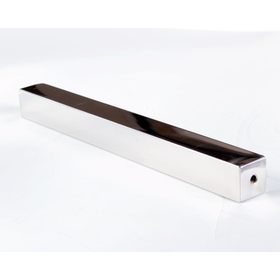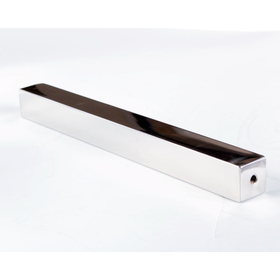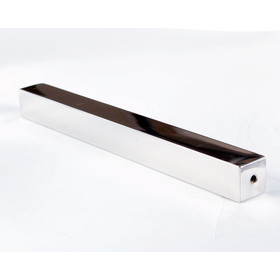Rust-resistant neodymium magnet
Rust-resistant neodymium magnets!! There are still no places that can handle them!!
Neodymium magnets are very prone to rust. Therefore, they are generally plated in three layers (nickel-copper-nickel). Our rust-resistant neodymium magnets have an additional layer, making it a four-layer plating (nickel-copper-nickel-electroless nickel). Please take a look at the enlarged diagram below. You should be able to confirm the thickness of the plating. There are products that seem to accept that neodymium magnets will rust. Especially for items used outdoors, it may be said that they should be replaced once they rust. However, if an expensive product rusts quickly, consumers may not buy it again. In such cases, please use our neodymium magnets with a special four-layer plating. Features: ◎ With a four-layer structure that includes a thick three-layer plating and pinhole-free coating, they are resistant to rust and can be used in water and outdoors. ◎ The thick and evenly applied copper plating in the intermediate layer enhances the shielding effect. ◎ Despite being metal-plated, they have over 120 hours of rust resistance in salt spray tests (standard plating typically rusts after about 24 hours). ◎ We can accommodate small lots as well.
basic information
◎ Due to its four-layer structure with a thick three-layer plating and pinhole-free gold plating, it is resistant to rust and can be used underwater and outdoors. ◎ The intermediate layer has a thick and uniform copper plating, enhancing the shielding effect. ◎ Despite being metal-plated, it has a rust prevention effect lasting over 120 hours in salt spray tests. (Regular plating typically shows rust after about 24 hours.) ◎ Can accommodate small lot orders.
Price range
Delivery Time
Model number/Brand name
Sangyo Supply
Applications/Examples of results
We can accommodate all applications that have used magnets so far, including automobiles, home appliances, robots, miscellaneous goods, and stationery. Sometimes, you may come across neodymium magnets used in products that are rusted. For example, magnets are used in door stoppers in homes, and I have observed rust on all the stoppers in my house. My house is 12 years old. Those stoppers are from a well-known major company, so they are not cheaply made overseas. Even if you are diligent about cleaning your home, it is unpleasant to find rust in such places. The manufacturer's technicians may not be aware of this. They might not think that rust could occur indoors. Neodymium magnets are that prone to rust. It is unclear if improvements have been made now, but if you are considering using neodymium magnets, please consult a magnet supplier like us first.
catalog(1)
Download All CatalogsRecommended products
Distributors
We manufacture custom-made magnets for metal foreign object removal starting from just one unit, with a rich inventory and the ability for quick shipping. ■ We respond sincerely even for small products or single unit requests. We are committed to providing honest service for small products and requests for just one unit. ■ Processing without gaps or grooves for food applications is possible. - The joint between the magnet bar and the stainless steel plate can be welded with rounded edges. - We can polish the screw heads that secure the magnet bar and eliminate grooves on the screw heads. ■ We can assist even without drawings. Having a drawing allows for quicker responses, but we can provide estimates through communication via fax or email even without one. If possible, a sketch similar to a comic would help us respond even faster. We also handle the sale of various powerful magnets from stock and can manufacture custom-made items starting from one unit.



















